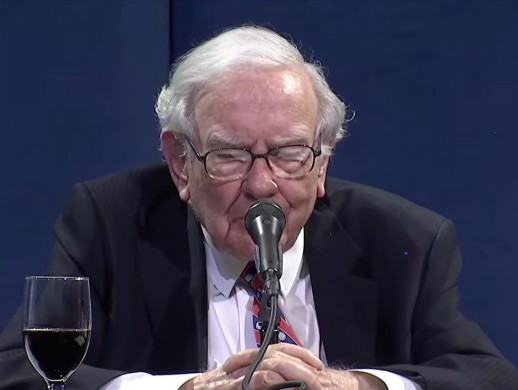Warren Buffett’s decision to hold on to his American Express shares in 1994 (see the last newsletter) turned out to be a great one. Within five years they multiplied by five. To date the investment is a twenty-bagger and Berkshire Hathaway now owns $19bn of American Express shares – that is 18.7% of the company.
Long before the fateful golf game in which Buffett was persuaded to hold on to the shares by his golfing partner, Frank Olson, CEO of Hertz, Buffett had observed the return to rationality at American Express.

First there was a change at the top in February 1993 after Robinson was pressed by investors and the board to resign. He was replaced by Harvey Golub, who had been in charge of the very successful IDS Financial Services Division since 1984 and of the card and travelers cheques businesses since November 1991.
Golub had a three-part strategy:
(1) to build the core franchises, with a particular focus on the “brand value” – music to Buffett’s ears
(2) to raise money by selling underperforming divisions, and
(3) to cut costs.
Second, a bunch of non-core businesses were sold, raising billions. In April 1992 a 46% stake in First Data, the information service subsidiary (card processing operations for many card companies including Visa and Mastercard), was sold in a public offering, raising almost $1.1bn. The next March saw the First Data stake reduce to approximately 22%, raising another $1.1bn.
Also in 1993, Shearson Lehman’s retail brokerage and asset management business was sold for $1bn plus a portion of future profits from that business. And, The Boston Company, a private banking, trust and mutual fund administration businesses, was sold together with Shearson Lehman Hutton Mortgage Corporation, which engaged in mortgage banking, for $1.45bn.
In May 1994 the Lehman Brothers division was spun off to American Express’s shareholders in a tax-free distribution (a special dividend: 1 share of Lehman for five of American Express). Prior to that the company’s stated its “investment” in Lehman at $2.4bn.
These actions were designed to achieve the targets Golub set of,
(a) achieving an annual return on equity of 18–20%, and
(b) increasing earnings per share by 12-15% per year
In 1995 the revitalised card business expanded to 27 countries. And the company started the drive to beef up its credit card offering (branded the “Optima” card to distinguish it from the charge card) to compete with Visa and others, entering a foreign country for the first time, Britain, that year.
Sending money to shareholders
The third stage must have been the clincher for Buffett because it gave insight into the degree to which the directors were of shareholder oriented.
Between 1992 and 1994 the directors did so well in improving the core business, raising capital through non-core sales and in cutting costs that American Express was clearly generating cash flow greater than that needed to maintain the economic franchise, and it looked as though it would continue to do so for as far as the eye could see.
Instead of hoarding the money or going on a wild spending spree of acquisitions – as far too many managers do – they quietly returned it to shareholders via the repurchase of common stock.
They understood their circle of competence and they understood that any additional dollar invested must generate a good rate of return. The directors expressed their intent in the 1994 Annual Report thus,
“To the extent retained earnings exceed investment opportunities, the Company will return excess capital to shareholders in the form of share repurchases. During 1994 the Company has moved from the point several years ago when it needed to strengthen its capital position to where the Company has the capital to support its credit ratings, fund growth opportunities in its core businesses and return capital to shareholders through a share buyback program.”
The stream of cash to shareholders started in September 1994 with a buy back of 14.6m shares at an average of $30.37. Large repurchases have taken place in most years since, reaching as much as $1.89bn in 1998 and $4.6bn in 2019.
Berkshire becomes the largest shareholder
All these encouraging signs led to Buffett becoming increasingly convinced that American Express was on track to be a superb investment. In 1994 Berkshire not only held on to the 14m shares coming from the conversion of the PERCs, but bought a further 13.8m (average price $30.81). This raised Berkshire’s stake to 5.5% of the company.
Already Amex was Berkshire largest spend on a non-controlled company at $724m except for the amounted devoted to Coca-Cola, $1,298m.
Then, in March 1
………………To read more subscribe to my premium newsletter Deep Value Shares – click here http://newsletters.advfn.com/deepvalueshares/subscribe-1

 Hot Features
Hot Features













